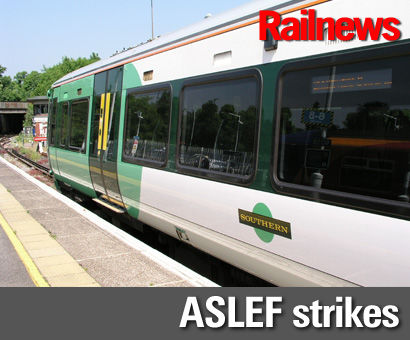STRIKES by drivers on Southern are set to start tomorrow, after a High Court judge rejected an application by Govia Thameslink Railway last week for an injunction against their union ASLEF.
ASLEF has hailed the decision as a victory and called for fresh talks, although GTR was given leave to appeal and the hearing is expected this week.
In the wake of the judgment, one Sussex MP has said changes in the law should be considered.
Southern services are also being disrupted by a continuing ASLEF ban on overtime and rest day working by drivers, which began on 6 December and will continue indefinitely.
The company had argued that strikes, called in the dispute over driver-only operation, would be a 'breach of the rights' of train users under EU law.
Chief executive Charles Horton had warned of a 'devastating impact' to the economy of the south east if Southern train services were halted but the judge, Sir Michael Burton, said that while the strikes would cause massive disruption they had been sanctioned by a lawful ballot and did not unlawfully restrict freedom of movement provisions.
GTR chief operating officer Nick Brown said: "Naturally we are disappointed. The judge said that such unprecedented strike action by ASLEF would cause massive disruption to the public.
"The judge also said the widespread use of trains using driver operation is perfectly safe both in Southern and elsewhere in the UK. We brought this action for the benefit of our passengers. The judge has given us permission to go to the Court of Appeal."
ASLEF had accused GTR of trying 'to prevent the voice of their put-upon employees being heard', and said GTR's court action had been a waste of 'shareholders' money, passengers' money and taxpayers' money'.
Just over 87 per cent of those who had voted in a November ballot had been in favour of strikes, in reaction to what the union described as Southern's decision to 'force through driver-only operation'. General secretary Mick Whelan said: "Now the company should do the right thing and sit down with us and negotiate -- properly, sensibly and in good faith -- to do a deal for the benefit of passengers, staff and, yes, the company, just like ScotRail did with us earlier this year."
There have been new calls for third party intervention in the long-running dispute over plans to replace most conductors by on-board supervisors. Nick Herbert, who is MP for Arundel and South Downs, said the government should now look at other 'remedies' to counter 'unjustifiable' strikes, including possible changes in the law. He said: "I believe members of Parliament will be very willing to consider it."
Stoppages by drivers are now set to start on 13 December, followed by more walkouts on 14 and 16 December, and then 9 to 14 January. More than 95 per cent of GTR's drivers belong to ASLEF, and GTR has warned that very few Southern trains will run on strike days.
Further RMT action has been scheduled for 19 and 20 December, and then from 31 December to 2 January inclusive.


